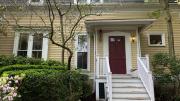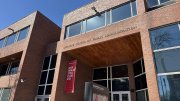Dear Readers,
This morning—after undergraduates who were able to leave departed campus by the College’s Sunday, 5:00 p.m. target—Harvard faculties and the administration began piloting remote work, away from campus, for as many employees as possible. Activity is coming to a stop across campus, and across the wider society as the coronavirus pandemic—and measures to combat it—spread.
Today is also the date in Harvard Magazine’s bimonthly production schedule when advertising sales for the May-June issue conclude, and edited articles for the issue are due, so the business and editorial staff members can lay out the magazine and prepare it for the printer in early April—and then for delivery to you. A few individuals will complete this work today, and then begin working from home, as our colleagues already are.
It is our intent, at this extraordinary moment, to:
- produce the next issue of the magazine and deliver it to you in a timely way;
- report, where possible, online, about Harvard University news—as teaching has moved online for the rest of the semester; the Faculty of Arts and Sciences and other schools have instructed researchers to pause noncritical work by this Wednesday (and to prepare to suspend research or conduct it remotely for at least the next six to eight weeks); and other operations are being dispersed to maximize social distancing (the museums are closed; the American Repertory Theater has canceled its productions); and
- where feasible, to report important biomedical developments. Managing editor Jon Shaw’s initial story, in late February, was unfortunately prescient in reporting professor of epidemiology Marc Lipsitch’s observations that pre-symptomatic transmission of the coronavirus would make “tracing and quarantining contacts of infected individuals nearly impossible,” suggesting that the infection was then “almost certainly already a pandemic,” requiring “robust public-health containment strategies”—and that an estimated 20 percent to 60 percent of the adult global population would eventually become infected.
Harvard remains a preeminent teaching and research institution. Many of its biomedical experts are deeply involved in critical coronavirus research, and the staff members at its affiliated hospitals are gearing up to care for coronavirus patients.
As everyone enters uncharted territory, we will do our very best to keep you informed. We ask your understanding if we encounter glitches along the way. We hope you can support our advertising partners, when possible, during severely challenging times for them and their dedicated employees.
Above all, we wish you, your colleagues, and your loved ones safety and health.
Irina Kuksin, Publisher, John S. Rosenberg, Editor, and the staff of Harvard Magazine









